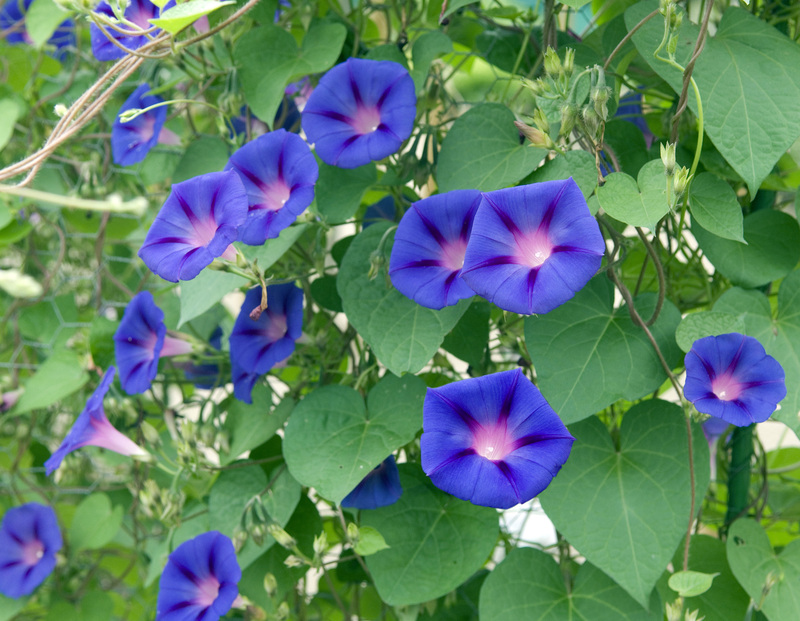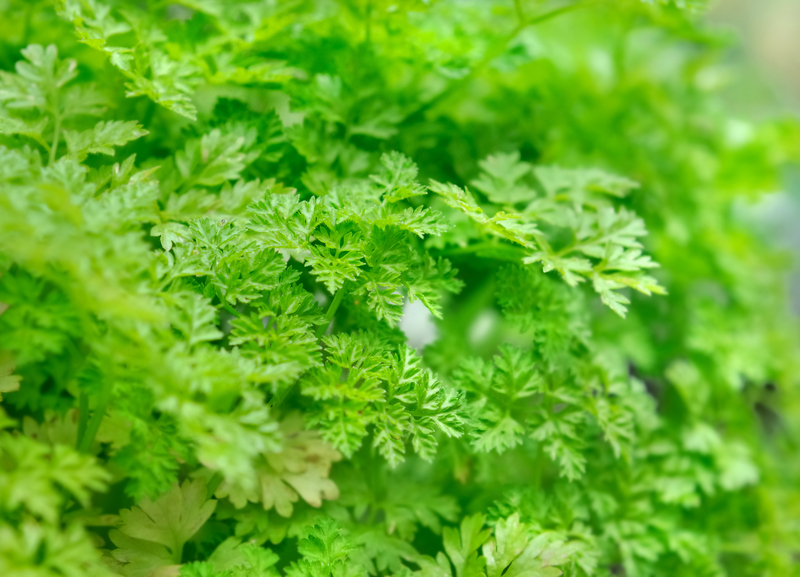Essential Tips for Starting Your Own Herb Garden
Posted on 05/06/2025
Essential Tips for Starting Your Own Herb Garden
Are you passionate about cooking or eager to enhance your garden with aromatic plants? Starting your own herb garden is a rewarding and practical project that can bring fresh flavors, vibrant greenery, and delightful scents right to your home. Whether you're a seasoned gardener or a beginner, this comprehensive guide will walk you through all the essential tips for starting your own herb garden, ensuring your success from seed to harvest.

Why Grow Your Own Herbs?
Herb gardening is more than just a hobby--it's a smart investment in your health, home, and cuisine. Homegrown herbs offer:
- Freshness: Enjoy the intense flavor and nutritional benefits of freshly picked herbs.
- Cost savings: Reduce your grocery bill by harvesting only what you need.
- Accessibility: Conveniently snip herbs for meals, teas, and remedies without leaving home.
- Eco-friendliness: Minimize packaging waste and carbon footprint.
- Therapeutic value: Gardening is shown to reduce stress and boost mood.
Choosing the Right Location for Your Herb Garden
The first step in starting an herb garden is selecting the perfect spot. Herbs thrive with ample sunlight and well-drained soil, so consider these essential factors:
Sunlight Requirements
Most herbs need at least six hours of direct sunlight per day. South-facing windowsills, patios, or a sunny patch in your yard are ideal. If growing indoors, place containers near windows or supplement with grow lights.
Soil & Drainage
Herbs dislike waterlogged roots. Ensure your garden bed or pots allow for good drainage. Use potting mix formulated for herbs and vegetables, or improve garden soil by adding compost, coarse sand, or perlite.
Space & Accessibility
Herb gardens should be easy to access, especially if you plan to use them regularly in your cooking. Raised beds, window boxes, and containers on a balcony make great options for urban gardeners and beginners.
Selecting the Best Herbs to Grow
The success of your DIY herb garden also depends on choosing the right plants for your climate, space, and culinary needs. Consider these popular and beginner-friendly herbs:
- Basil: Perfect for Italian dishes, basil loves full sun and warm weather.
- Mint: A vigorous grower ideal for teas and desserts--best grown in a pot to prevent spreading.
- Parsley: Versatile and hardy, parsley grows well in sun or partial shade.
- Rosemary: This fragrant shrub fares best in hot, dry climates and full sun.
- Thyme: Perfect for borders or rock gardens, thyme prefers well-drained soil.
- Cilantro: Essential for salsa and Asian dishes, cilantro prefers cooler seasons.
- Chives: Tolerant and productive, chives add a mild onion flavor to many recipes.
Pro tip: For maximum variety, try planting a mix of annuals (such as basil, dill, and cilantro) and perennials (like thyme, oregano, chives, and mint).
Planning Your Herb Garden Layout
Thoughtful design will make caring for your herb garden easier and more productive. Here's how to plan your garden layout:
Group by Watering Needs
Certain herbs prefer drier conditions (e.g., rosemary, thyme), while others need more moisture (e.g., basil, parsley). Group herbs with similar watering requirements together to avoid over or under watering.
Consider Growth Habits
Some herbs, such as mint and oregano, can spread aggressively. Plant them in containers or isolated spots to prevent them from taking over your garden.
Vertical and Small Space Options
If space is limited, try vertical gardening using hanging pots, stacked planters, or wall-mounted herb gardens. Windowsill herb gardens also make excellent beginner projects for indoor spaces.
Getting Started: Seeds vs. Seedlings
Should you grow herbs from seeds or buy established plants? Both options have their advantages:
- Growing from seed:
- Budget-friendly, especially for large gardens
- Wider selection of varieties
- Best for quick-growing annuals like basil and cilantro
- Starting with seedlings:
- Beginner-friendly--less waiting and fewer early-stage risks
- A good option for slow-growing herbs like rosemary or sage
Many gardeners use a combination of both to maximize success and variety.
Soil Preparation and Planting Tips
Preparing the Soil
High-quality, well-draining soil is the foundation of a thriving herb garden. Mix in aged compost or organic matter to enrich the soil and ensure good drainage. For container gardens, use a premium potting mix formulated for herbs.
Planting Depth and Spacing
Follow seed packet or plant label instructions for the best depth and spacing. Generally, herbs like chives and basil can be planted closer together, while larger plants (like rosemary) need more room to grow. Proper spacing encourages airflow and deters disease.
Mulching
A thin layer of organic mulch (compost, straw, or fine bark) helps conserves moisture, suppresses weeds, and maintains even soil temperature. Be careful not to pile mulch against the stems of your herbs, as this can promote rot.
Watering & Fertilizing Your Herb Garden
Watering Tips
- Consistency is key: Water when top inch of soil feels dry.
- Morning is the best time to water, minimizing fungal issues.
- Ensure containers have drainage holes to prevent soggy roots.
Fertilizing Tips
- Less is more: Very fertile soil can reduce herb flavor intensity.
- Use organic fertilizers or aged compost a few times per season.
- Avoid synthetic fertilizers, which can promote rapid, but weak, growth.
Pest & Disease Management in Your DIY Herb Garden
Healthy herbs are naturally resistant to many common pests and diseases. However, vigilance is essential:
- Encourage beneficial insects: Ladybugs, lacewings, and bees help control pests and pollinate flowers.
- Remove damage leaves:
- Inspect plants weekly for aphids, whiteflies, spider mites, and powdery mildew.
- Use neem oil or insecticidal soap for infestations, always following label directions.
- Rotate crops each season and avoid overhead watering to reduce disease.
Harvesting Your Homegrown Herbs
When and How to Harvest
The key to strong, healthy herb plants is regular harvesting:
- Pick often: The more you cut, the more new growth most herbs will produce.
- Harvest in the morning after dew has dried, but before the sun gets too hot.
- Use sharp scissors or pruners to snip leaves or stems--never tear or bruise the plant.
- For leafy herbs (basil, mint), trim just above a pair of healthy leaves to encourage branching.
- For woody herbs (rosemary, thyme), harvest no more than one-third of the plant at a time.
Storing Fresh Herbs
- Place cut stems in a glass of water on the counter (for basil) or in the fridge (for parsley, cilantro).
- Wrap leaves in a damp paper towel and store in a zip-top bag in the refrigerator for up to one week.
Drying and Freezing Herbs
- Air-dry sturdy herbs in small bunches hung upside down in a cool, dry space.
- Freeze chopped herbs in ice cube trays with water or olive oil for long-term storage.
- Store dried herbs in airtight jars, away from sunlight and moisture.
Common Mistakes to Avoid When Starting an Herb Garden
Even with the best intentions, beginners sometimes make these missteps:
- Overwatering: Herbs generally prefer to dry out between watering; soggy soil can kill roots.
- Poor sunlight: Herbs grown in insufficient light become weak and leggy.
- Overcrowding: Plants need space--too tight and they compete for nutrients and sunlight.
- Ignoring harvests: Regular harvesting keeps plants productive and healthy.
- Using garden soil for containers: Use potting mix for potted herbs to ensure drainage and aeration.
Creative Ways to Grow Herbs at Home
- Windowsill Herb Gardens: Perfect for apartments or kitchens with natural light--use matching pots for a tidy look.
- Vertical Gardens: Mount wall planters or shelves to grow herbs upward and save space.
- Hanging Baskets: Grow trailing herbs like thyme, oregano, or mint in baskets suspended from ceilings or hooks.
- Raised Beds: Improve soil quality and accessibility by planting herbs in raised wooden or metal planters.
- Indoor Hydroponic Systems: Modern, soil-free "smart gardens" let you cultivate fresh herbs year-round with minimal effort.

Frequently Asked Questions About Starting an Herb Garden
How often should I water my herb garden?
Most herbs prefer soil that's allowed to dry slightly between waters. Check regularly--if the top inch of soil feels dry, it's time to water.
Can I grow herbs indoors all year round?
Absolutely! Many popular culinary herbs thrive indoors with sufficient light and proper care. Use windowsills with at least 6 hours of sun or supplement with grow lights.
What are the easiest herbs to grow for beginners?
Basil, chives, mint, parsley, oregano, and thyme are all easy to grow and very forgiving for first-time gardeners.
Should I plant herbs in separate pots or together?
Some herbs are compatible and can share a pot. However, fast-growing or spreading herbs like mint should always be grown solo to prevent them from overtaking others.
How do I keep pests off my herbs without chemicals?
Encourage natural predators like ladybugs, hand-pick visible pests, try gentle sprays of soapy water, or use neem oil as a last resort.
Conclusion: Start Your Herb Garden Today!
Starting your own herb garden is one of the most satisfying ways to enjoy fresh flavors, greenery, and therapeutic gardening benefits at home. By following these essential tips for a thriving herb garden, you'll be well on your way to growing ingredients that will enhance your meals and lifestyle. Begin with a handful of easy herbs, care for them thoughtfully, and you'll quickly discover the joy of harvesting your own homegrown bounty.
Ready to get started? Gather your chosen herbs, prepare your soil, and let the gardening adventure begin. Happy planting!
Latest Posts
Building a Whimsical Child-Friendly Garden
Unlock Unmatched Privacy with These 9 Swift-Growing Hedges
Transform your garden into a haven for dogs
Effective Ways to Shield Your Garden Plants During Winter
Green Paradise Restoration: Where to Begin in Garden Makeovers



